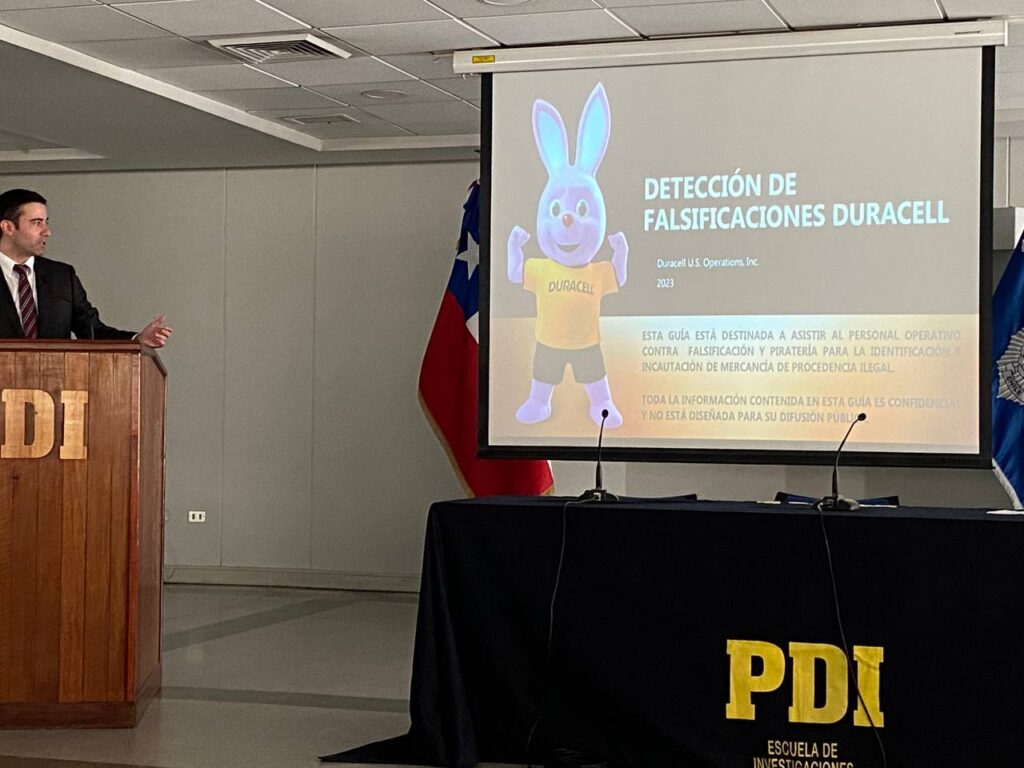/ Alessandri participated in a seminar on IP crimes organized by Bridepi
October 7, 2023The Intellectual Property Brigade (Bridepi) of the Investigations Police of Chile (PDI) held the first seminar on Intellectual Property Crimes. Representatives from public and private organizations attended, sharing their experiences and daily work in preventing these types of crimes within their respective fields.
The first seminar on intellectual property crimes brought together organizations from both the public and private sectors, sharing various experiences in fighting crimes against industrial and intellectual property. Participants included entities such as Customs, INAPI, INTA, PDI investigators and experts, the Internal Revenue Service, Public Prosecutors, and several legal firms representing different trademark holders.
During the opening, the National Chief of Economic and Environmental Crimes at PDI, Prefect Leonel Fuentes, emphasized that industrial and intellectual property is one of the primary drivers of innovation and creativity in our country (and the world). Hence, protecting Chile from crimes that threaten this property is a top priority. He acknowledged that this task has become more complex with new technologies and e-commerce.
Hernán Torres, associate attorney at Alessandri, shared his experiences with companies Duracell and Umbro. Regarding Umbro, Hernán discussed how to identify counterfeit products of the sports brand and the analysis conducted to determine the authenticity of a product. Concerning Duracell, he mentioned that it’s one of the most counterfeited brands globally, but the production doesn’t occur in Chile; instead, counterfeit products come from outside and are resold here. He also provided guidance on identifying “pirate” batteries and cells using the Duracell brand name.
The session also featured insights from institutions like PDI through their offices and the work of experts, from detecting crimes to studying seized samples. For instance, they showcased seized items and the meticulous examination performed with authentic products, highlighting the precision required to determine piracy.
Experiences from other state institutions were also shared, such as the daily challenges faced by Customs. José Luis Castro, the deputy director of enforcement, discussed the National Plan for Industrial Property Inspection. He mentioned the impossibility and lack of capacity to inspect everything entering the country but emphasized certain signs and technologies aiding in the detection of counterfeit material.
INAPI (National Institute of Intellectual Property) described the types of registrations, their implications, validity periods, and other related details.
Additionally, various private companies and organizations shared their experiences in dealing with these crimes. They discussed the efforts of Mercado Libre in detecting intellectual property infringements on their platform. Marcela Ortiz, the legal manager of the company’s e-commerce division, explained the challenges they face, stating that Mercado Libre lacks control over what is posted until it’s already on the website. While they have terms and conditions that users agree to when posting an offer, including prohibitions, they still encounter intellectual property offenses with counterfeit materials. However, she urged users to report postings violating these terms.
Finally, together with Alessandri, other law firms also shared their experiences with clients and the work undertaken to defend their products.
